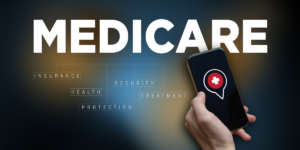ALBANY, NEW YORK – North Country Neurology, P.C., a physician-owned medical practice located in Watertown, New York, has agreed to pay $850,000 for what it admitted was “improper” and “reckless” billing to the federal government for medical services, announced United States Attorney Carla B. Freedman.
“The integrity of our federal health care system depends on accurate and honest billing by medical providers,” said United States Attorney Freedman. “While North Country Neurology will pay a steep price for submitting false claims for payment to Medicare, I commend the practice and its management for accepting responsibility for its past actions and for implementing forward-looking compliance measures in response to our investigation to assure systems are in place to facilitate and promote ethical and legal conduct in the future.”
North Country Neurology employed physicians and a physician assistant who rendered care to Medicare beneficiaries. In certain circumstances, Medicare allows practices to bill for services rendered by a non-physician practitioner (NPP), including a physician assistant, “incident to” the services that are personally rendered by a physician. These services, even though not personally rendered by a physician, may be billed in a physician’s name if several requirements are met. One such requirement is that a physician directly supervise the NPP rendering the services, meaning that a physician is present in the office suite and immediately available to furnish assistance and direction throughout the procedure. Although Medicare will reimburse practices for certain procedures rendered by NPPs without a physician’s direct supervision, such services are reimbursed at a lesser rate than service rendered or directly supervised by a physician.
North Country Neurology admitted that, on 120 occasions from September 2015 through June 2019, it “submitted or caused to be submitted claims for payment to Medicare that improperly listed a physician as the rendering provider for services rendered by a physician assistant when no physician was physically present in the office and immediately available to furnish assistance and direction throughout the performance of the procedure.” The practice further admitted that it “knew or should have known the requirements of incident-to billing and that it was improper to submit claims to Medicare in a physician’s name for services rendered by an NPP when no physician was in the office” because, among other reasons, its billing company had informed the practice’s owner of separate incident-to billing violations several years earlier.




No comment yet, add your voice below!